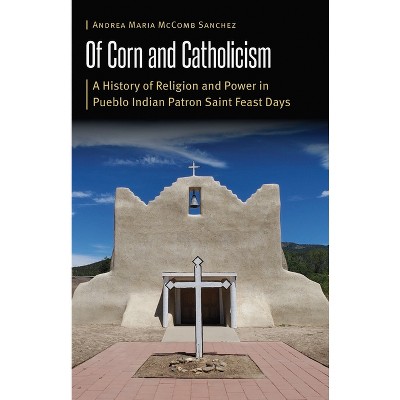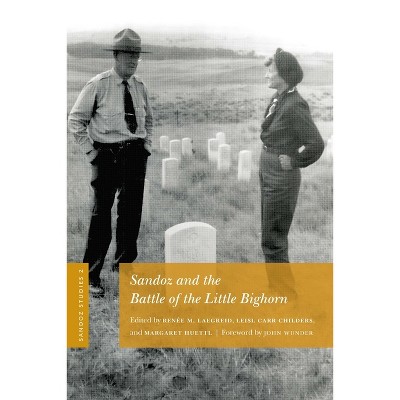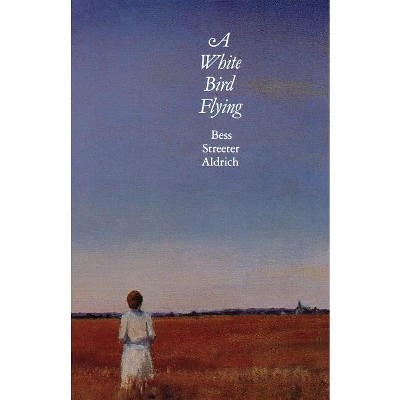Sponsored

Fruit, Fiber, and Fire - by William R Carleton (Hardcover)
$55.00
In Stock
Eligible for registries and wish lists
Sponsored
About this item
Highlights
- Fray Francisco Atanasio Domínguez Award from the Historical Society of New Mexico New Mexico-Arizona Book Award Finalist in History For much of the twentieth century, modernization did not simply radiate from cities into the hinterlands; rather, the broad project of modernity, and resistance to it, has often originated in farm fields, at agricultural festivals, and in agrarian stories.
- About the Author: William R. Carleton is the editor of Edible New Mexico and lives in Albuquerque, New Mexico.
- 228 Pages
- Business + Money Management, Industries
Description
About the Book
Fruit, Fiber, and Fire explores the industrialization of apples, cotton, and chile to illustrate how agriculture has spurred migrations of plants and people and in turn shaped the culture of twentieth-century New Mexico.Book Synopsis
Fray Francisco Atanasio Domínguez Award from the Historical Society of New MexicoNew Mexico-Arizona Book Award Finalist in History For much of the twentieth century, modernization did not simply radiate from cities into the hinterlands; rather, the broad project of modernity, and resistance to it, has often originated in farm fields, at agricultural festivals, and in agrarian stories. In New Mexico no crops have defined the people and their landscape in the industrial era more than apples, cotton, and chiles. In Fruit, Fiber, and Fire William R. Carleton explores the industrialization of apples, cotton, and chiles to show how agriculture has affected the culture of twentieth-century New Mexico. The physical origins, the shifting cultural meanings, and the environmental and market requirements of these three iconic plants all broadly point to the convergence in New Mexico of larger regions--the Mexican North, the American Northeast, and the American South--and the convergence of diverse regional attitudes toward industry in agriculture. Through the local stories that represent lives filled with meaningful struggles, lessons, and successes, along with the systems of knowledge in our recent agricultural past, Carleton provides a history of the broader culture of farmers and farmworkers. In the process, seemingly mere marginalia--a farmworker's meal, a small orchard's advertisement campaign, or a long-gone chile seed--add up to an agricultural past with diverse cultural influences, many possible futures, and competing visions of how to feed and clothe ourselves that remain relevant as we continue to reimagine the crops of our future.
Review Quotes
"American agricultural historians will find this study revealing and suggestive for similar investigations regarding the development of modern agriculture across cultural borderlands where competing ideas and traditions merge to change the agricultural landscape for crops, people, and the land. It also is essential reading for anyone interested in the history of New Mexico. Carleton has written an informative and engaging agricultural history for New Mexico that significantly contributes to the larger agricultural history of the United States."--R. Douglas Hurt, Agricultural History Review
"Carleton . . . provides a unique text on the agricultural history of New Mexico that would be relevant as an addition to any library institution supporting programs in history or agricultural history, and is essential for libraries in the southwestern US and northern Mexico, as well as those supporting historical study of the American West."--J. Cummings, Choice
"Extremely important. . . . Fruit, Fiber, and Fire is a significant contribution to the fields of New Mexico history, Southwest history, agricultural history, historical geography, cultural history, and borderlands history."--Sterling Evans, author of Bound in Twine: The History and Ecology of the Henequen-Wheat Complex for Mexico and the American and Canadian Plains, 1880-1950
"William Carleton tells a richly textured story of New Mexican agriculture that sheds new light on the rise of modern industrial agriculture in the twentieth century. In particular, he shows in fascinating detail how 'industrial' agriculture often incorporated 'traditional' elements and therefore how misleading those labels can be."--William Thomas Okie, author of The Georgia Peach: Culture, Agriculture, and Environment in the American South
About the Author
William R. Carleton is the editor of Edible New Mexico and lives in Albuquerque, New Mexico.Dimensions (Overall): 9.0 Inches (H) x 6.0 Inches (W) x .69 Inches (D)
Weight: 1.12 Pounds
Suggested Age: 22 Years and Up
Number of Pages: 228
Genre: Business + Money Management
Sub-Genre: Industries
Publisher: University of Nebraska Press
Theme: General
Format: Hardcover
Author: William R Carleton
Language: English
Street Date: June 1, 2021
TCIN: 94489704
UPC: 9781496216168
Item Number (DPCI): 247-11-0669
Origin: Made in the USA or Imported
If the item details aren’t accurate or complete, we want to know about it.
Shipping details
Estimated ship dimensions: 0.69 inches length x 6 inches width x 9 inches height
Estimated ship weight: 1.12 pounds
We regret that this item cannot be shipped to PO Boxes.
This item cannot be shipped to the following locations: American Samoa (see also separate entry under AS), Guam (see also separate entry under GU), Northern Mariana Islands, Puerto Rico (see also separate entry under PR), United States Minor Outlying Islands, Virgin Islands, U.S., APO/FPO
Return details
This item can be returned to any Target store or Target.com.
This item must be returned within 90 days of the date it was purchased in store, shipped, delivered by a Shipt shopper, or made ready for pickup.
See the return policy for complete information.
Frequently bought together
Trending Non-Fiction

$19.31
was $20.98 New lower price
4 out of 5 stars with 59 ratings
















